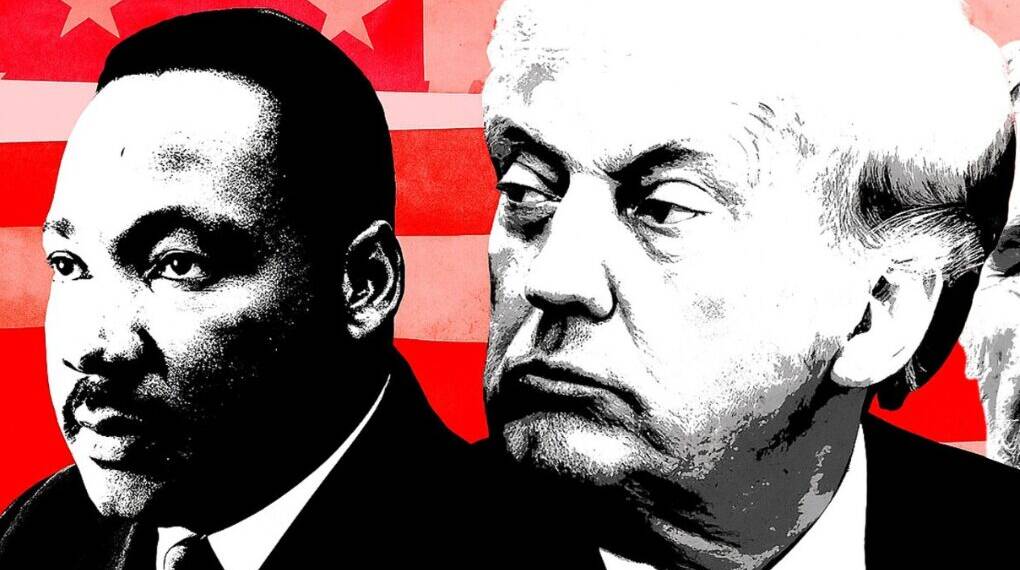On July 21, 2025, the Trump administration released a massive trove of over 240,000 pages of documents related to the FBI surveillance and assassination investigation of Dr. Martin Luther King Jr. The files, long sealed under court order since 1977, provide an unprecedented look into government actions against one of America’s greatest civil rights leaders.
Yet, amid the historical significance of the release, critics suggest that the timing and motives behind it may be less about transparency and more about diverting public attention from mounting political controversies tied to the Jeffrey Epstein investigation.
An Unprecedented Disclosure Amid Political Turmoil
The documents include FBI surveillance files, CIA reports, and investigative material related to King’s assassination. They were released pursuant to an executive order signed by President Trump in January 2025, which demanded the declassification of records related to the assassinations of Martin Luther King Jr., John F. Kennedy, and Robert F. Kennedy.
Officially, the release is touted as a step toward transparency, with government agencies asserting that “the American people deserve answers” about these pivotal moments. The scale and depth of the files are remarkable, unearthing decades of government scrutiny and secretive investigations into King’s life and murder.
However, the release occurred at a politically sensitive moment. The Trump administration was facing mounting criticism over its handling of documents tied to the investigation into the late financier Jeffrey Epstein, who died in jail under suspicious circumstances in 2019 while awaiting trial on sex trafficking charges.
Public frustration grew over what many saw as a lack of full openness from the government. Against this backdrop, many observers interpret the timing of the King files’ release as a strategic move to shift public focus away from the Epstein scandal.
FBI Surveillance: Revisiting Government Hostility Toward King
The documents reveal the well-documented government surveillance campaign against King led by FBI Director J. Edgar Hoover. King was subjected to wiretaps, bugging, and attempts to discredit him, all fueled by fears over his growing influence and opposition to the Vietnam War.
King’s family has described this surveillance as an invasion of privacy and a purposeful effort to tarnish his reputation. Released files serve as a historical record of this predation but also raise questions about the ethics and abuse of power within federal agencies.
Assassination Still Shrouded in Controversy
While James Earl Ray was convicted for King’s murder after pleading guilty, he later recanted his confession, claiming he was a scapegoat in a broader conspiracy, a claim supported by the King family and a 1999 civil lawsuit verdict. The newly disclosed documents contain investigative leads but stop short of definitively resolving lingering doubts about whether Ray acted alone.
The release adds complexity but also underscores the deep mistrust many hold toward official narratives regarding King’s death, a mistrust present within the Black community and civil rights advocates.
Family Voices and Varied Reactions
Martin Luther King III and Bernice King, who were given advance access to the files, urged the public to approach the documents with respect and an appreciation for their family’s ongoing grief. They emphasized the importance of understanding the surveillance and assassination efforts within their broader historical context.
Yet, civil rights leaders like Rev. Al Sharpton criticized the administration’s release as a cynical distraction. Sharpton described it as an attempt to divert media and public scrutiny away from contentious issues surrounding Epstein document disclosures and related political scandals involving the White House.
Some family members, including King’s niece Alveda King, took a different tone, praising the administration for fulfilling a promise of transparency. Nonetheless, the prevailing sentiment among many activists is that the timing was politically motivated.
Epstein Files Controversy: The Elephant in the Room
The Epstein investigation has remained a hot-button issue for the Trump administration, with critics accusing officials of withholding material evidence and transcripts related to Epstein’s alleged sex trafficking ring that implicated powerful figures. In the days before the King files release, public anger was intensifying over perceived governmental opacity.
Within this context, releasing a high-profile dossier of documents on Martin Luther King Jr.—a figure who inspires widespread respect and commands deep emotional resonance—served as a potential “firewall,” distracting attention from the Epstein scandal.
Despite the symbolic weight of the files and their undeniable historical value, many observers interpret this move as part of a broader political strategy to recalibrate the media narrative and redirect public focus.
A Historic Release, But at What Cost?
The newly available documents undeniably contribute to a fuller understanding of Martin Luther King Jr.’s life, the federal government’s covert war against him, and the unresolved mysteries around his assassination. For historians, activists, and the public, the files represent invaluable material for reflection and research.
However, when set against the backdrop of contemporary political scandals, the release also raises uncomfortable questions about how sensitive historical truths can be strategically deployed for political ends. The intersection of history, justice, and politics becomes especially fraught when transparency is selectively applied or timed for maximum distraction.
Also Read: Is MAGA angry with Trump over Epstein files?
Balancing Transparency with Political Reality
The Trump administration’s release of Martin Luther King Jr.’s assassination and surveillance files are both a milestone for historical transparency and a contentious political act. While these documents finally bring long-hidden government records into the public sphere, their unveiling cannot be divorced from the political context that shapes their reception.
As the nation digests this trove of information, it remains critical to read the release not only as a gesture toward openness but also through a lens mindful of contemporary political maneuvers. In doing so, Americans can better understand the continuing struggle for truth and justice—both in the history of civil rights and in today’s political landscape.








